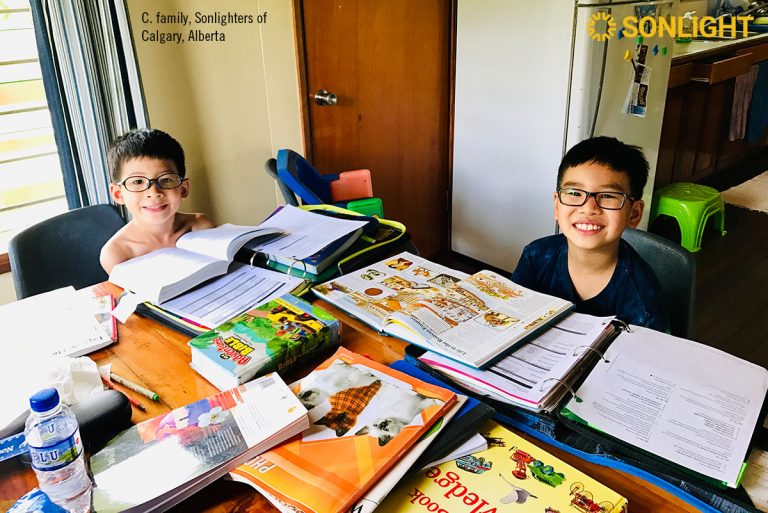When you move far away from your homeland and homeschool abroad, you face unique challenges in terms of getting supplies and finding support. Here's help.

Homeschooling overseas is hard. Let’s just start with that. A large part of the difficulty is due to the unique challenges of living abroad.
- You may be living in a country where you always feel like an outsider.
- You might constantly wonder when you’re going to make your next cultural faux pas.
- You may live in a third-world or developing nation where daily tasks are more tiresome and require more planning.
Add homeschooling to your life as an expatriate, and life reaches another level of complexity.
1. Acquiring Homeschool Supplies
You’ve moved to Southeast Asia and suddenly realize that you have no idea where to buy the simplest of supplies for your next science experiment. If you dissolve into tears simply because you can't find a pack of magnets, you are not alone. I’ve been there.
Shopping and finding supplies tends to be one of the hardest skills to acquire when you move from one country to another. Many countries don’t have the large supermarkets popular in the West, so you need to figure out which small shops sell the things you need. Differences abound! Here are some ideas to solve this problem:
- As you make friends with locals, ask them where to buy individual items. Asking for help is a great relationship-builder. Even when navigating the maze of little downtown shops appears impossible to you as a foreigner, you may already have a neighbor who knows the exact shop that specializes in the school supply you’re seeking!
- Purchase your experiments and hands-on-activities from Sonlight. You get both international shipping and all-in-one packages that include everything you need.
2. Misunderstandings About Home Education
Homeschool is not well understood globally. In many countries, homeschool is not even legal for citizens! While it may be legal for foreign residents, the practice may raise eyebrows or confuse. Here are some ideas for handling confusion or suspicion about homeschooling:
- Don’t explain your decision to homeschool by saying negative things about the local school system. Instead, focus on explaining the positive results that you’ve experienced in your family.
- Seek to understand the way that your new community views and values education. By taking the stance of a learner, you will avoid conflict.
3. Second Language Learning
As a foreigner abroad, you will likely need to learn a second language! Even if you don’t absolutely need to, I recommend putting in the effort to add language study to your schedule if you are planning to spend at least one year in the country. Here are some tips:
- Don’t try to do it all on your own! Consider hiring a local language teacher or joining a local language class as a family.
- Start sooner rather than later. Becoming proficient in a language takes time. When you first move to a new country, it might feel overwhelming to begin studying the language right away. But three years down the road, you’ll be so much further along, and so much more able to engage with the local community, than if you delay language learning by a year or more.

the C. family, Sonlighters of Calgary, Alberta
4. Distance from Any Homeschool Support System
When you move far away from your homeland to a country where homeschooling is hardly ever heard of, you lose such your support system. This can be a very lonely road. Here are some ways to help:
- When local homeschool groups are not an option, look into the online homeschool community! Online communities like Sonlight Connections can provide robust advice and support!
- Think outside the box. When an expatriate homeschool community doesn’t exist where you live, can you start building friendships with local homeschoolers? Or with local families whose children attend local school? When we are no longer spoiled with a community of people like us, we can see it as an opportunity to challenge ourselves by building a community with people who aren’t very much like us. Perhaps that is one of the greatest gifts that homeschooling abroad offers our families!
How have you learned to handle the various challenges involved in homeschooling abroad?
Use SmoothCourse™ to select your ideal Sonlight curriculum. Start here.








